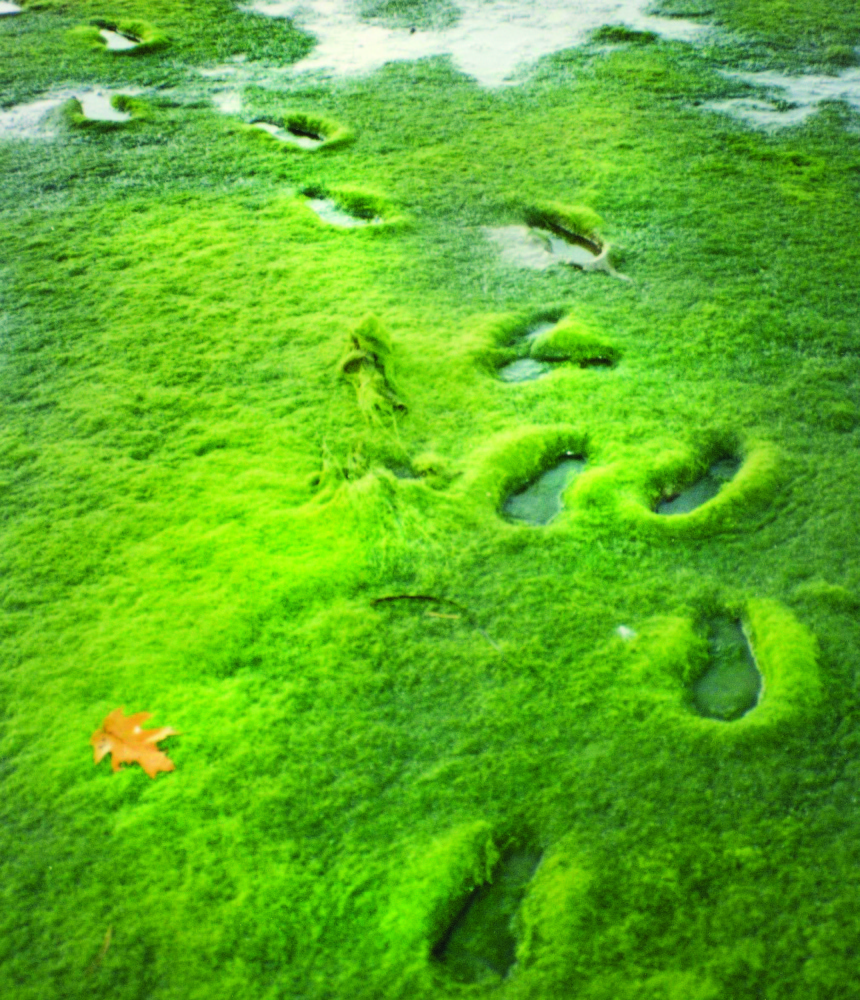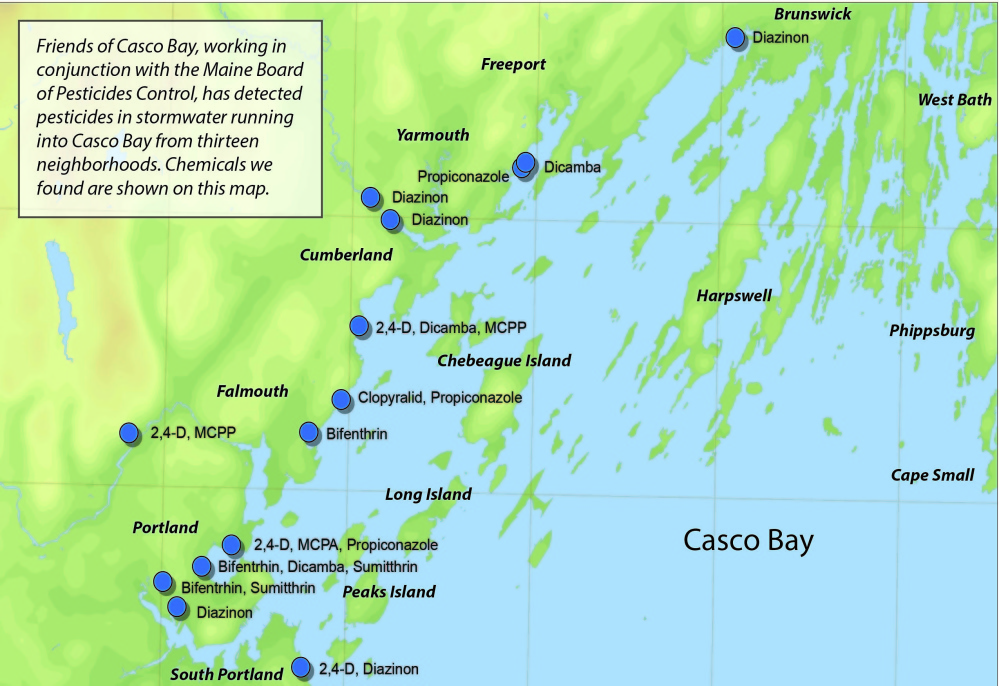SOUTH PORTLAND — Unlike Bob Mann of Lawn Dawg Inc. (“Maine Voices: Healthy lawns nurtured with synthetic fertilizers filter pollutants,” Dec. 19), we at Friends of Casco Bay applaud the town of Ogunquit’s innovative ordinance that bans the application of synthetic fertilizers and pesticides on private property. Not only do lawn chemicals have the potential to harm children and pets, but pesticides and fertilizers (whether synthetic or organic) can also threaten marine life as well.
We have sampled rainwater as it flowed into Casco Bay, in several coastal communities. We found pesticides in stormwater in 13 neighborhoods from South Portland to Brunswick. We detected pesticides, such as 2, 4-D, Dicamba and MCPP, common herbicides in weed and feed products.
Mann asserts that licensed applicators evaluate a lawn before applying pesticides, instead of spraying chemicals over an entire area. From that statement, we should be able to infer that lawn care providers are doing a soil test on each property, waiting for the lab results and then tailoring specific formulations of chemicals according to each property’s need. That is certainly different from the four-times-a-year applications of lawn chemicals that we observe happening in our neighborhoods.
While licensed applicators must demonstrate their knowledge of integrated pest management procedures in order to be certified by the state, in practice, it is all too rare that we observe most large-scale companies assessing the individual needs of a particular property before treatment. When product is applied that isn’t needed, plants won’t absorb it, and the excess remains in the soil, where it can be moved by rainwater, to wreak havoc downstream.
Smart decisions about what is needed based on soil testing help minimize unnecessary applications. The educated consumer will buy and apply only what is needed for their particular lawn, and in doing so, both save money and help protect the marine environment.
Mainers – and their lawn care providers – buy over 5.7 million pounds of pesticide and fertilizer combinations each year for their lawns and gardens. They’re fertilizing not only their yards but also the ocean.
Of great concern to those of us who value our coastal waters is nitrogen-rich fertilizer. All living things require nitrogen, but too much nitrogen is not good; in the ocean, excess nitrogen is a major pollutant. Sampling by our staff and a dedicated corps of volunteer Citizen Stewards has found excess nitrogen in water samples all around Casco Bay.
Nitrogen promotes leafy, green growth on land; it does the same in the ocean. Nitrogen fertilizes seaweeds, stimulating the growth of large mats of green algae, making scenic coves slick with green slime that can smother clams and other intertidal and mud-dwelling creatures.
Too much nitrogen also stimulates the growth of large blooms of phytoplankton, the microscopic plants at the base of the ocean food web. Marine animals can’t consume all of these tiny plants. When the blooms die off, their decomposition removes life-giving oxygen from the water. Less oxygen can lead to fish kills and “dead zones” unable to support a diversity of marine life, leading to conditions that tend to favor jellyfish and bacteria.
Nitrogen is the leading cause of coastal acidification in Casco Bay. Decaying phytoplankton blooms release carbon dioxide, which can make seawater and mudflats inhospitable to marine life. In Casco Bay, we are already seeing clam flats where the mud is too acidic to support healthy beds of soft-shell clams, Maine’s third largest fishery.
A monoculture lawn requires lots of chemicals to sustain it. A “perfect” green lawn is less healthy than a lawn of diversified vegetation, with clover, a mix of grasses such as fescues, ryegrass and even (gasp) dandelions.
What is most important is not to overwater and to adjust the lawn mower to its highest setting possible so that grass is not cut too short. Better yet, limit your lawn and replace grass with a good density of native plants of ground cover, shrubs and trees.
For more information, go to yardscaping.org or cascobay.org and click on Our Work/BayScaping to find fact sheets on “Does your lawn care professional BayScape?” and “BayScaping: Seasonal tips for green yards to keep Casco Bay blue.”
Send questions/comments to the editors.




Success. Please wait for the page to reload. If the page does not reload within 5 seconds, please refresh the page.
Enter your email and password to access comments.
Hi, to comment on stories you must . This profile is in addition to your subscription and website login.
Already have a commenting profile? .
Invalid username/password.
Please check your email to confirm and complete your registration.
Only subscribers are eligible to post comments. Please subscribe or login first for digital access. Here’s why.
Use the form below to reset your password. When you've submitted your account email, we will send an email with a reset code.